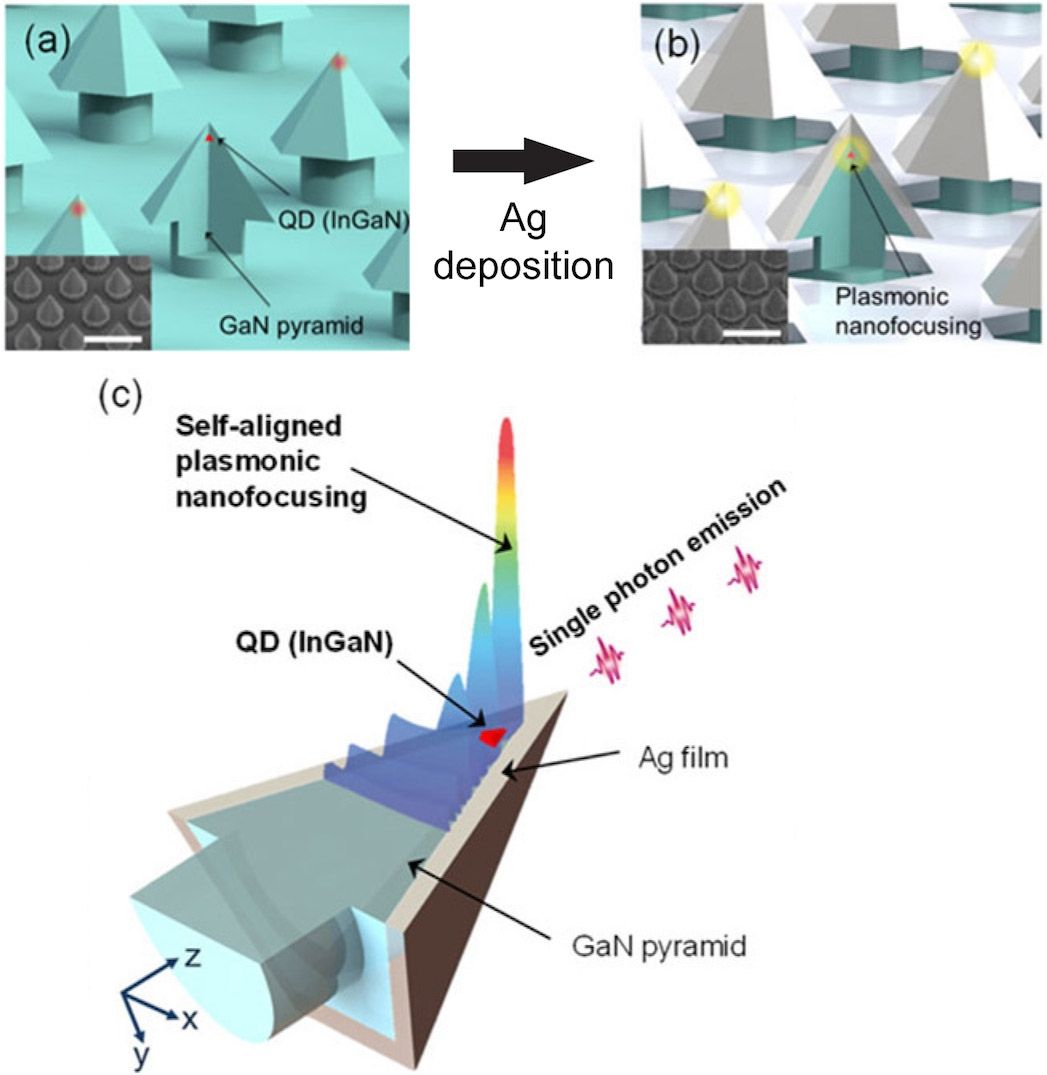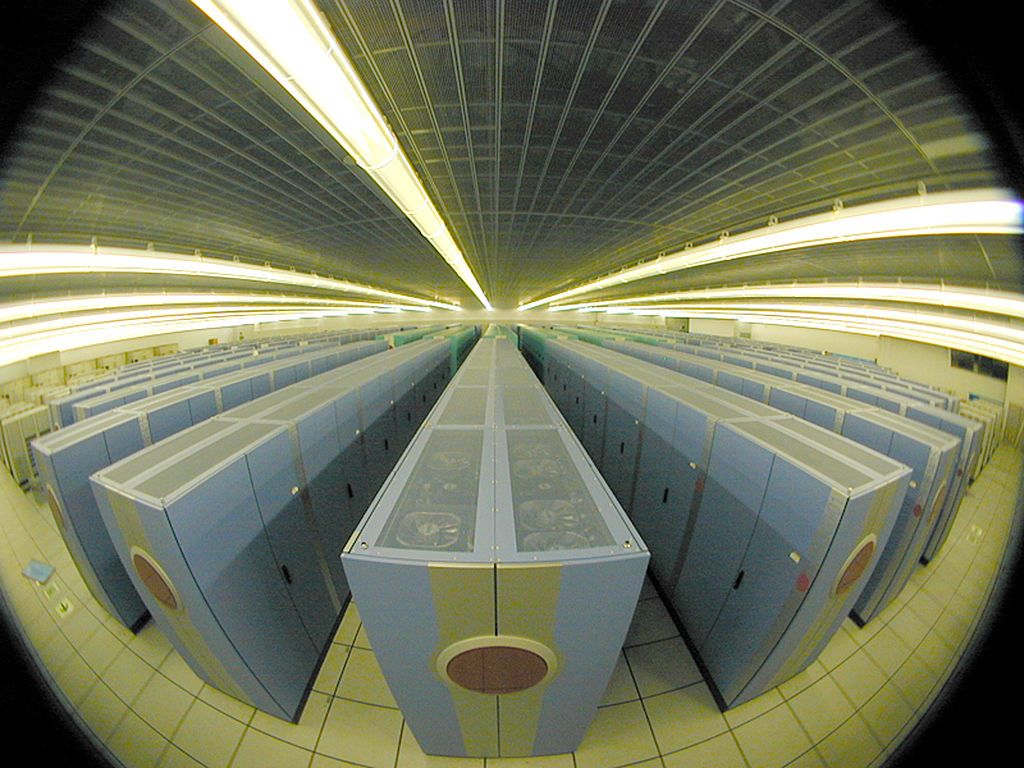Novel structures exhibit highly directional emission and provide a template for site-controlled quantum dots and self-aligned nanophotonic cavities.
![]()
Semiconductor quantum dots (QDs) are thought to be a promising candidate for a single-quantum emitter in on-chip systems because of their well-developed growth and fabrication techniques. Semiconductor QDs, however, have a number of inherent limitations that need to be overcome before they can be used in practical applications. For example, QDs in semiconductors are strongly affected by elements (e.g., phonons) in the surrounding environment, which results in short nonradiative decay times and rapid dephasing processes. Despite the high intrinsic radiative decay rates of semiconductor QDs compared with those of other single-quantum emitters (such as atoms and ions), the radiative decay rate needs to be further increased so that these fast nonradiative and dephasing processes can be overcome. Furthermore, the collection efficiency of the light that is emitted from conventional QDs embedded in a high-index planar substrate is typically low (about 4%).







